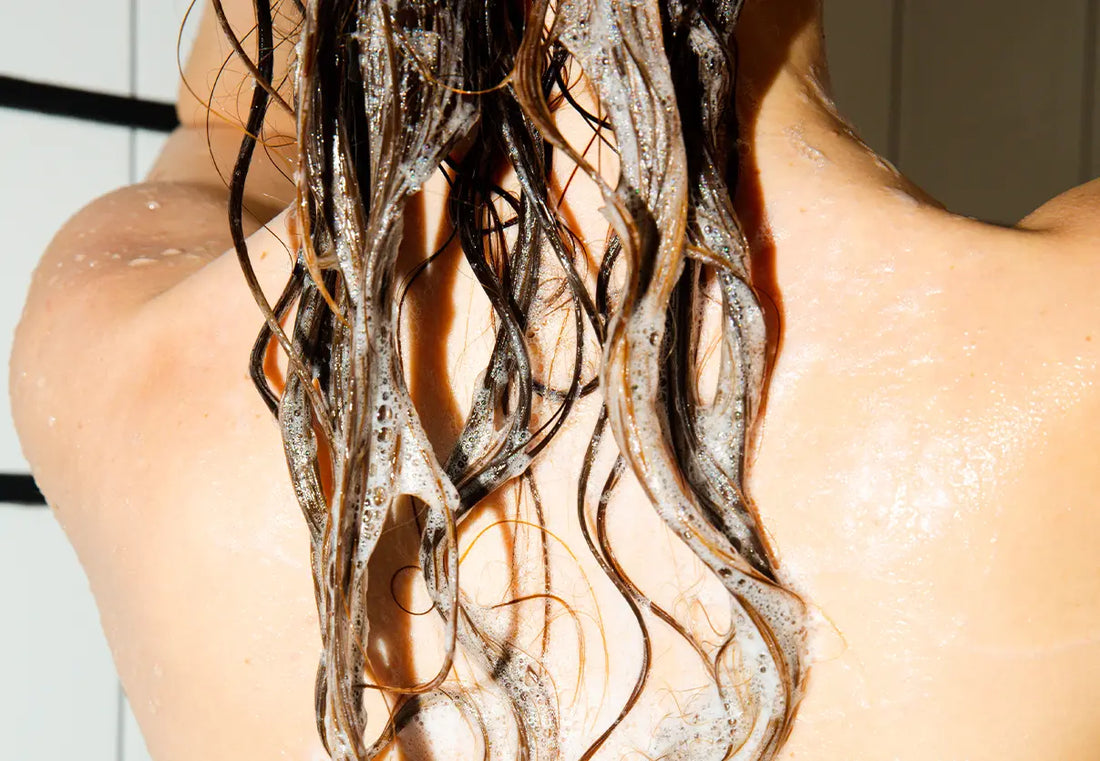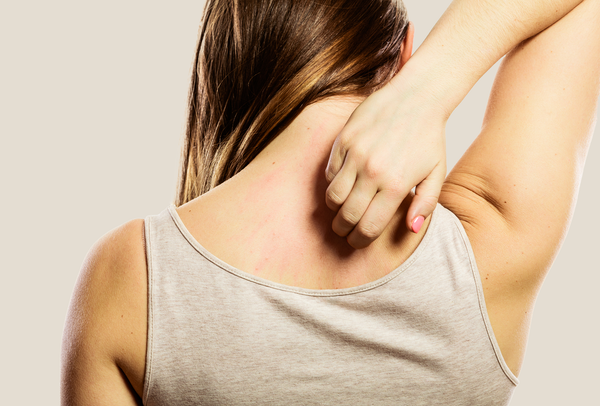This is definitely at the top of the list of hair questions our founder is asked most. Friends, family, and customers aren’t the only ones—media outlets like InStyle, Byrdie, and Well+Good have interviewed Harvard-trained dermatologist Dr. Iris Rubin about the topic of shampooing frequency, too. And every time she answers, the response is always, “It depends.” Here, we explain the factors that can influence how often you need to shampoo.
Your scalp’s oil production
The scalp is skin, so its level of oil production—and whether it’s oily or dry—is generally dictated by genetics and hormonal fluctuations. However, haircare products can be a common cause of scalp dryness as well as an oily look or feel.
A dry scalp can be a sign of an allergy or irritation from one or several ingredients in a haircare product. Flaking and discomfort can be the result of potentially harsh ingredients like sulfates that can strip the scalp and other skin of their natural moisture. An imbalanced scalp microbiome can contribute to dry scalp as well. And lastly, signs of dry scalp can be due to a skin condition called seborrheic dermatitis. If trying an over-the-counbter medicated shampoo for dandruff, switching to sulfate-free haircare products, or trying a scalp serum like SEEN Restore Scalp Serum don’t provide relief, it’s a wise idea to schedule an appointment with a dermatologist.
Many haircare products deliver their desired results by binding to the hair—and can leave a residue on the scalp that can cause product build-up. The scalp and hair can look greasy as product and oil accumulate, and this build-up can also potentially result in clogged pores. This is not beneficial for scalp or hair health because the follicles are literally the manufacturing plant for your hair. Keeping the follicles clean and clear is important for healthy hair growth.
Hair type
Different types of hair require different care, and this includes how often you shampoo. In general, finer, straighter hair needs to be washed more often than thicker, more textured hair. Many with finer, straighter hair need to shampoo daily to avoid looking oily or flat. One of the biggest mistakes people with fine (as well as thinning) hair make is avoiding washing, which can have a negative impact on follicle health.
Curly hair ranges from loose ringlets to tight coils, and the appropriate wash frequency can range from once or twice a week (or even less for some) depending on the level of curl. Curly hair needs moisture because it’s more difficult for scalp oil to travel down curved strands, and over-shampooing can lead to dryness and breakage.
Naturally drier and chemically treated hair may need to be washed less often to minimize over-drying the hair. It’s also important that these hair types use a shampoo that’s free of potentially harsh ingredients, which can make the hair look and feel straw-like as well as potentially lead to an irritated or flaky scalp.
The season
Depending on where you live or travel, you might have noticed how your skin reacts to changes in climate and weather. The same goes for the scalp, which can be oilier when it’s hot and humid—or dry and flaky when it’s cold. This is why some people find they wash their hair more in the summer and less in the winter. We also can’t ignore that increased sweating during summer months may contribute to more frequent washing as well.
Your fitness routine
The level of sweat generated by your workout of choice has an impact on your hair (and what you need to do with it) afterwards. While Pilates may only require a scrunchie, a bootcamp class is virtually guaranteed to result in a head-to-toe cleanse.
What to look for in a shampoo
The ideal shampoo for every type of scalp and hair, season, and lifestyle effectively cleanses the hair and scalp, doesn’t strip either of their essential moisture, and is gentle on the hair, scalp, and skin—even with daily use.
This isn’t a holy grail… It’s SEEN Shampoo, and Dr. Rubin believes that a mild yet effective dermatologist-developed shampoo formula can be the solution for all combinations of scalp and hair types.
SEEN Shampoo is great for those with oily scalps (who likely have oily skin elsewhere) because it won’t clog pores and contribute to breakouts. People with dry scalps benefit from its non-irritating, sulfate-free formula, as well as soothing naturally derived bisabolol. Our shampoo also features moisture-replenishing glycerin and hemisqualane (C13-15 Alkane), a plant sugar-derived alternative to silicone that helps dry hair look and feel smooth and healthy.
Since we’re all about gorgeous hair and healthy-looking skin for all, SEEN Shampoo is also available fragrance free. With the National Eczema Association’s Seal of Acceptance™, those sensitive and eczema-prone skin can also wash without worry.
Whether you wash every morning like clockwork or go days between shampoos, don’t lather up without SEEN! It takes care of your hair while looking out for your skin every time.




